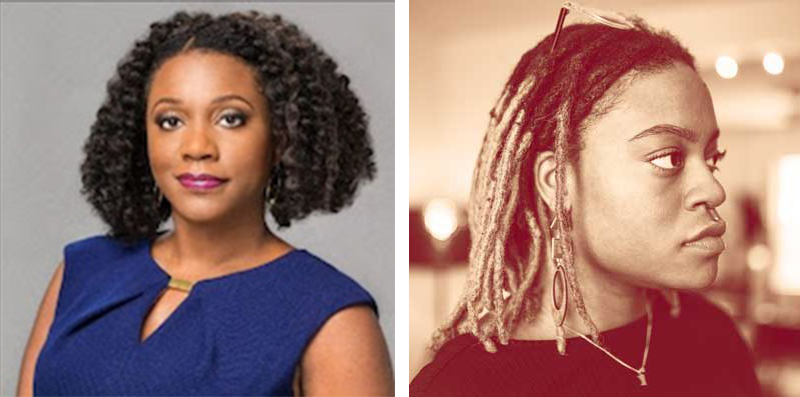Newsrooms across the country have been in overdrive most of this year, covering a global pandemic, a primary and a presidential election and protests against systemic racism and police brutality. Contributors with YR Media, a national network of young journalists and artists, many of them people of color, have been covering the events of 2020 with reporting and perspectives that are rarely afforded space and attention in national or corporate outlets.
“But the key is, it’s not just about having a bunch of voices, it’s about listening to the voices,” said CEO Kyra Kyles. “People don’t need to be empowered, they just need other people to quiet down a little bit, so that they can be heard and not dominate the conversation, whether it’s because you’re an older person, or you know, a person who’s white, or whatever you are that’s allowing you that microphone. Sometimes you just need to pass that to the left or to the right, so that other people can speak.”
Sometimes, as contributor Erianna Jiles found, people are unwilling to listen when the topics at hand are difficult for them. Jiles, a creative writing student at Metropolitan State University in St. Paul, Minn., has written about her experiences as a Black student on a campus where the majority of students are white.
“On one side of things, it’s important that I have a voice and I’m encouraged to have a voice. But then the moment I speak up, it feels like people are so shocked, or they don’t understand where I’m coming from,” Jiles said.
In one of her essays, Jiles wrote that during a time when demonstrators in cities nationwide took to the street to protest the police killing of George Floyd, her four white roommates made signs and posters but never once spoke with her about police brutality or systemic racism.
“We never talked about it. I never got checked up on about it. And it was just, like, a very weird reality to be in,” Jiles said. “How can we say Black lives matter and support all that, but then like, the one Black person that’s closest to you, in your space, you don’t even check up on them or have a conversation about it?”
Many journalistic institutions confronted their own histories of racism and a lack of diversity in media this year. Kyles said that problem is decades old, and discussions about it can feel cyclical as the years go by and little changes.
“I think what’s important is that as we see an evolution and a change in the newsroom and a change in the media, we’ll see a change in the messages and we’ll get a more nuanced story,” Kyles said. “Until we materially change the way these newsrooms look, we’re just, you know, having a conversation again, and it’s a conversation that was had 20 years ago, 20 years before that, and I think we just need to move beyond it and really get into the action of making change.”
A segment from our radio show and podcast, “Civic.” Listen at 8 a.m. and 6 p.m. Tuesdays and Thursdays at 102.5 FM in San Francisco, or online at ksfp.fm, and subscribe on Apple, Google, Spotify or Stitcher.










